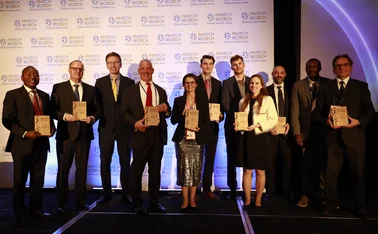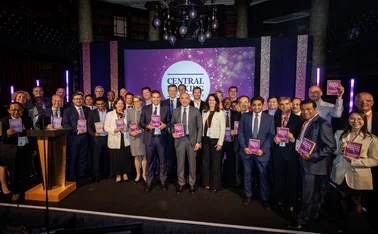
Sustainability Initiative: Bank for International Settlements

In 2015, former Bank of England governor Mark Carney said shifts in the earth’s climate brought potentially profound implications for financial stability and the global economy. Worldwide, central banks and regulators have slowly implemented new policies and initiatives to reduce their exposure to climate risk.
Leading the way is the Bank for International Settlements (BIS), which, in 2017, took up the challenge of introducing a corporate bond investment pool that screens investments according to environmental, social and governance (ESG) principles.
The BIS is also working on integrating ESG into its pension fund investment policy. A working group has been established to look into how it can consider ESG within its investments using indexes and filters available.
Building on the success of its investment pool – and in response to central banks’ growing demand for green investments – in September 2019 the BIS launched a dollar-denominated Green Bond Fund.
“The idea was to set up a fund that not only accommodates reserve managers’ specific needs of safety, liquidity and return, but also channels central banks’ aggregate investment power to have a positive influence on market participants’ behaviour and on how green investment standards develop,” says BIS deputy general manager, Luiz Awazu Pereira da Silva.
After three investment rounds, the fund has reached a market value of more than $1 billion, with further subscriptions expected this year and next. Pereira da Silva says a “companion fund”, for investment in euro-denominated green bonds, will be launched early next year.
The push towards a more sustainable future is also heavily ingrained within the BIS’s internal operational processes thanks to its ‘Green Team’. Established in the early 2000s, the team of volunteers has worked to support eco-friendly activities and increase BIS staff awareness of the environmental impact of its daily operations.
In 2018, the team’s recommendations led to the deployment of an intelligent lighting system in the BIS headquarters in Basel. The system automatically adjusts to the outside light and, by using sensors, turns the interior lights off when the offices are empty. The team’s recommendations have also resulted in changes to the power and control units of its lifts, which now feed waste power back into the power net.
“One area that had seen less improvement was business travel, which until recently had been an integral part of our international co‑operation efforts,” explains Pereira da Silva.
The disruption imposed by Covid‑19 has provided BIS with an opportunity to rethink pre-existing models and develop different ways of interacting with its central bank stakeholders. Earlier this year, the BIS held its first-ever virtual annual general meeting.
“Making more use of technology to help make our international co-operation efforts sustainable is likely to be the way forward,” says Pereira da Silva.
Only users who have a paid subscription or are part of a corporate subscription are able to print or copy content.
To access these options, along with all other subscription benefits, please contact info@centralbanking.com or view our subscription options here: http://subscriptions.centralbanking.com/subscribe
You are currently unable to print this content. Please contact info@centralbanking.com to find out more.
You are currently unable to copy this content. Please contact info@centralbanking.com to find out more.
Copyright Infopro Digital Limited. All rights reserved.
As outlined in our terms and conditions, https://www.infopro-digital.com/terms-and-conditions/subscriptions/ (point 2.4), printing is limited to a single copy.
If you would like to purchase additional rights please email info@centralbanking.com
Copyright Infopro Digital Limited. All rights reserved.
You may share this content using our article tools. As outlined in our terms and conditions, https://www.infopro-digital.com/terms-and-conditions/subscriptions/ (clause 2.4), an Authorised User may only make one copy of the materials for their own personal use. You must also comply with the restrictions in clause 2.5.
If you would like to purchase additional rights please email info@centralbanking.com







